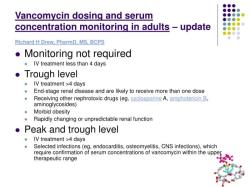What is a therapeutic IV infusion or injection?
A therapeutic IV (intravenous) infusion or injection refers to the administration of medications, fluids, or other therapeutic substances directly into a patient's bloodstream through a vein. This method of delivery is commonly used in medical practice for several reasons, including:
Rapid Absorption: Intravenous administration allows for the rapid and immediate delivery of medications or fluids directly into the bloodstream. This can be crucial in emergencies or when rapid therapeutic effects are needed.
Precise Dosage Control: IV infusions and injections provide precise control over the dosage of medications, making it easier to achieve therapeutic levels in the body.
Avoidance of Digestive System: Some medications are not well absorbed through the digestive system or may be altered by stomach acids and enzymes. IV administration bypasses the gastrointestinal tract.
Continuous Administration: IV therapy can be used for continuous administration of medications or fluids over an extended period, such as in chemotherapy or long-term antibiotic therapy.
Treatment of Dehydration: Intravenous fluids are commonly used to treat dehydration, electrolyte imbalances, and fluid loss due to illness, surgery, or other medical conditions.
Pain Management: IV injections may be used for pain management, especially in post-surgical or palliative care settings.
Nutrition Support: Total parenteral nutrition (TPN) is a form of IV therapy that provides complete nutrition to patients who cannot consume food orally or through enteral nutrition (tube feeding).
Blood Transfusions: Blood and blood component transfusions are administered through IVs to treat various medical conditions, including anemia, trauma, or surgery.
Diagnostic Tests: IV contrast agents may be injected to enhance the visibility of blood vessels, organs, or tissues in medical imaging procedures like CT scans or angiography.
Immunotherapy: Some immunotherapies, such as monoclonal antibodies, are administered intravenously to treat cancer and autoimmune diseases.
Emergency Medications: IVs are commonly used in emergency medicine to administer life-saving medications rapidly, such as in the case of cardiac arrest, severe allergic reactions (anaphylaxis), or acute pain.
Sedation and Anesthesia: IV drugs are used to induce sedation or anesthesia for surgeries, procedures, or during hospitalization.
It's important to note that the administration of IV therapies requires skilled healthcare professionals to ensure patient safety and proper technique. Inappropriate or incorrect use of IV therapies can lead to complications. Additionally, patient consent, monitoring, and documentation are essential aspects of IV therapy administration.
The choice between IV infusion and injection depends on the specific medication, the patient's condition, and the therapeutic goals. Healthcare providers consider various factors when determining the most appropriate route of administration for each patient and situation.












